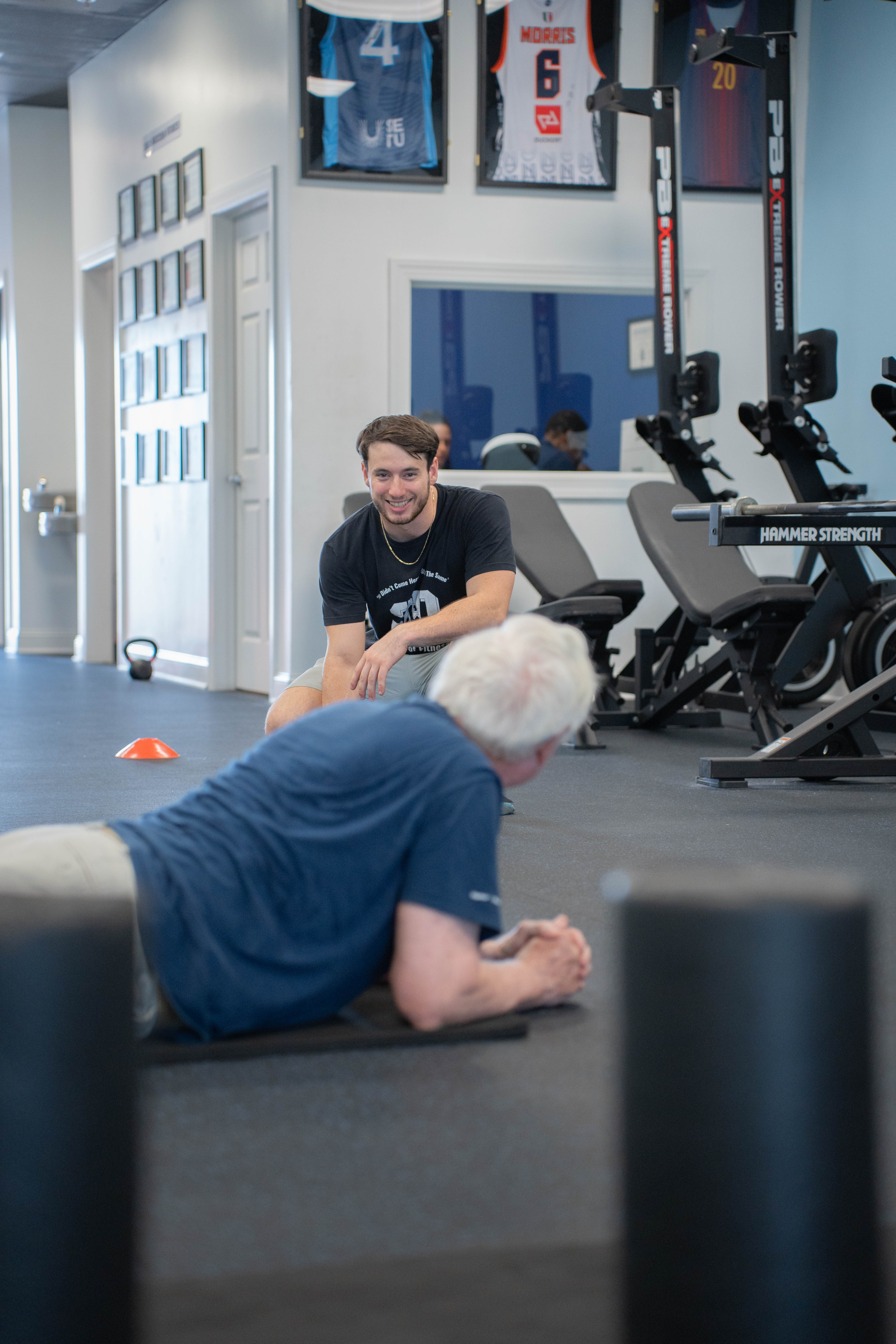Our Fitness Programs
Find out more about our training options
Small Group Training
Experience an affordable, community-driven approach to personal training with our results-oriented programs. Designed for all fitness levels, from beginners to advanced individuals, our training ensures accountability and trust every step of the way.
Athlete Performance
As Delaware’s premier sports performance facility, we train the state’s top athletes, helping them master goal-setting strategies. Our specialized programs, including vertical jump and speed training, are tailored to elevate athletic performance.
Why 3&D Personal Training?
Expert Coaching in Every Session — get personal guidance in a supportive small-group setting.
Training Built for You — programs designed for your goals, fitness level, and lifestyle.
Flexible & Hassle-Free — no contracts, make a change anytime, and fit fitness into your busy life.

Empowering Adults in Wilmington with Small-Group Training for Strength and Longevity
At 3&D Personal Training, we help adults over 40 feel stronger, more energetic, and confident through expert-led small-group personal training. Located in North Wilmington, our programs are designed to make fitness safe, effective, and enjoyable, helping you stay active and healthy for the long term.
Our programs include:
Small-group training — personalized guidance in a supportive, community-focused setting that keeps you motivated and accountable.
Strength and mobility-focused workouts — designed specifically for adults over 40 to improve strength, maintain mobility, and enhance daily energy.
Whether your goal is to increase strength, improve balance, or maintain long-term health, our experienced coaches create programs tailored to your abilities and needs. Training in a like-minded, supportive community ensures consistency, results, and a positive experience every step of the way.
Join 3&D Personal Training today and take the first step toward a stronger, healthier, and more confident you. Discover why we’re the go-to destination for small-group personal training for adults over 40 in Wilmington, DE.
Reviews
REAL PEOPLE. REAL RESULTS

3&D offers a great workout with wonderful people! You get the team spirit with small group workouts but you can individualize each workout to your personal goals!
— ANGELA A.

I love coming to 3&D! Great people and a great workout that combines cardio, strength and mobility. Lovell and the 3&D team are knowledgable, encouraging and kind.
— MAGGIE D.
Our Trainers

LOVELL KOSH
Co-Founder

RAYCHEL KOSH
Co-Founder

Where to find US
4331 Concord Pike, Wilmington DE 19803
Get Stronger, Move Better
Take the Step Toward a Healthier You
Quick Links
Programs
Location
4331 Concord Pike
Wilmington, DE 19803


